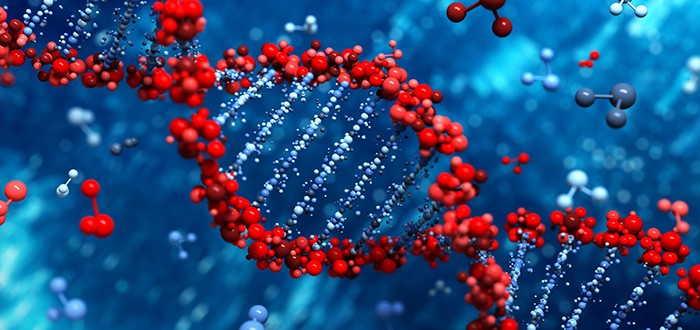Mesothelioma patients scheduled for chemotherapy followed by an extrapleural pneumonectomy tend to survive mesothelioma longer if a certain gene is found to be highly expressed.
The gene is excision repair cross-complementing group 1, more commonly called ERCC1. As the name implies, this gene is involved in the repair of damaged DNA.
When you have mesothelioma, damaged DNA repaired by ERCC1 means the cancer’s growth will be slowed. But if your DNA is not being repaired, then the mesothelioma can spread like wildfire.
The importance of ERCC1 to your ability to survive mesothelioma was reported earlier this year by researchers from Japan’s Hyogo College of Medicine.
How ERCC1 Affects Mesothelioma Patients
Here’s how the discovery about ERCC1 applies to you. Let’s say you’re scheduled to undergo an extrapleural pneumonectomy. Your mesothelioma specialist believes this will help extend your mesothelioma survival.
Prior to surgery, you’ll be given a course of mesothelioma chemotherapy. Treatment will probably consist of cisplatin plus pemetrexed. These two agents are the gold standard for malignant pleural mesothelioma chemotherapy.
But before the chemotherapy begins, you might be scheduled to undergo genetic testing. If so, keep your fingers crossed that the lab reports back that you have highly expressed ERCC1.
You’ll find that to be very good news indeed. That’s because chemotherapy plus extrapleural pneumonectomy tend to deliver better rates of mesothelioma survival if ERCC1 is highly expressed.
Mesothelioma Survival Rates Examined
The researchers determined this to be the case after studying a group of mesothelioma patients. There were 46 participants. Each received cisplatin-pemetrexed chemotherapy and an extrapleural pneumonectomy.
The mesothelioma treatments occurred between April 2004 and October 2013. Additionally, the patients underwent genetic testing to measure ERCC1 expression.
For the entire group, overall mesothelioma survival was a median of 24.5 months. The patients with low ERCC1 expression achieved mesothelioma survival of just 15.2 months.
However, the patients with high ERCC1 expression achieved mesothelioma survival of up to 43.6 months.
The researchers took their investigation a step further. They also considered whether ERCC1 mattered for patients who received radiation.
For that part of the study, they looked at a subgroup of 26 extrapleural pneumonectomy patients. These were patients treated after the surgery with hemithorax radiation.
Here, high ERCC1 expression did not equate to quite as long a span of mesothelioma survival. The best that could be achieved was 15.4 months.
Still, that was better than the radiation patients who were found to have low ERCC1 expression. They achieved 10 months of mesothelioma survival.
High ERCC1 Expression Is Bad in Other Cancers
It’s actually surprising that high ERCC1 expression is a good thing. In other cancers, it’s not good at all.
Other researchers have found that patients with non-small cell lung cancers and high ERCC1 expression aren’t helped by platinum-based chemotherapy.
In fact, the opposite is true for them. Low ERCC1 expression in non-small cell lung cancers tells doctors that chemotherapy should work great.
They’ve known that about ERCC1 for some time now because the first human DNA repair gene to be identified was ERCC1.
What scientists know about ERCC1 is that it encodes a protein consisting of 297 amino acids. However, they aren’t quite sure how ERCC1 expression becomes high or low in a person.

